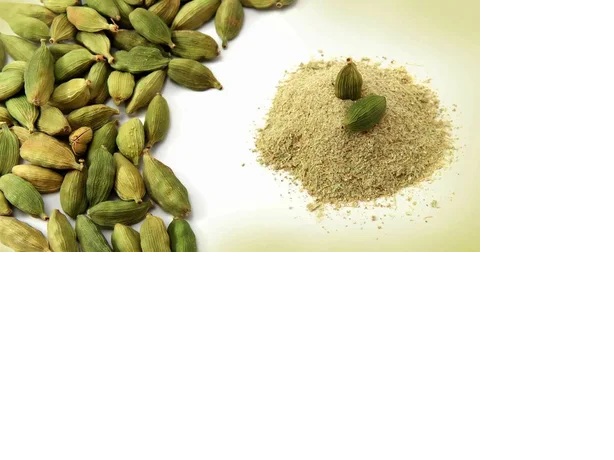Cardamom, scientifically known as Elettaria cardamomum, is a spice native to the Indian subcontinent and Southeast Asia. Revered for its aromatic flavor and medicinal properties, cardamom has been used for centuries in traditional medicine systems such as Ayurveda and Traditional Chinese Medicine (TCM). In this comprehensive guide, we’ll explore the origins, nutritional composition, health benefits, dosage recommendations, and safety considerations associated with cardamom supplements.
Understanding Cardamom
Origins and Traditional Use
Cardamom has a rich history of use in culinary and medicinal applications, dating back thousands of years. Native to the lush forests of India, cardamom pods have been prized for their unique flavor and fragrance in cooking and baking. In traditional medicine, cardamom has been revered for its digestive, respiratory, and circulatory benefits. It is often used to alleviate digestive discomfort, freshen breath, and promote overall well-being.
Nutritional Composition
Cardamom is rich in bioactive compounds that contribute to its medicinal properties and flavor profile. These compounds include volatile oils (such as cineole, terpinene, and limonene), phenolic compounds, flavonoids, and essential minerals (such as potassium, calcium, and magnesium). Additionally, cardamom contains vitamins A, C, and various B vitamins, further enhancing its nutritional value. Its diverse nutritional composition makes cardamom a valuable addition to the diet and a popular choice for supplementation.
Health Benefits of Cardamom Supplements
Digestive Health
Cardamom supplements are prized for their digestive benefits, particularly their ability to alleviate gastrointestinal discomfort and promote healthy digestion. The volatile oils in cardamom stimulate the secretion of digestive enzymes, which help break down food and facilitate nutrient absorption. Cardamom supplements may aid in relieving symptoms of indigestion, bloating, gas, and nausea, promoting overall digestive comfort.
Oral Health
Traditionally, cardamom has been used to freshen breath and promote oral health. The antibacterial properties of cardamom help inhibit the growth of oral pathogens that contribute to bad breath and gum disease. Chewing on cardamom pods or using cardamom-infused mouthwashes may help reduce oral bacteria and promote a healthy oral microbiome.
Respiratory Support
Cardamom supplements are valued for their respiratory benefits, particularly their ability to alleviate symptoms of respiratory conditions such as coughs, colds, and bronchitis. The expectorant and anti-inflammatory properties of cardamom help loosen mucus, soothe irritated airways, and reduce coughing. Cardamom supplements may be beneficial for individuals experiencing respiratory congestion or inflammation.
Antioxidant Protection
Cardamom is rich in antioxidants, which help neutralize harmful free radicals and protect cells from oxidative damage. The phenolic compounds and flavonoids in cardamom exhibit potent antioxidant activity, reducing the risk of chronic diseases such as cancer, heart disease, and neurodegenerative disorders. Regular supplementation with cardamom may help support cellular health and longevity.
Metabolic Support
Emerging research suggests that cardamom supplements may offer metabolic benefits, including blood sugar and cholesterol regulation. The bioactive compounds in cardamom, particularly cineole and limonene, have been shown to improve insulin sensitivity, reduce blood sugar levels, and lower LDL (bad) cholesterol levels. Cardamom supplements may be beneficial for individuals with diabetes, metabolic syndrome, or cardiovascular risk factors.
Dosage Recommendations
Powdered Form
Cardamom supplements are available in various forms, including capsules, tablets, and powders. Dosage recommendations may vary depending on the concentration of active compounds and the specific health condition being targeted. However, a typical dosage range for cardamom powder is 1-3 grams per day. It is advisable to follow the dosage instructions provided on the product label or consult with a healthcare professional for personalized recommendations.
Safety Considerations
Generally Recognized as Safe
Cardamom supplements are generally considered safe for most individuals when taken at recommended doses. However, some people may experience mild side effects, including gastrointestinal upset or allergic reactions. It is essential to start with a low dose and monitor for any adverse reactions. Pregnant or breastfeeding women should consult with a healthcare professional before using cardamom supplements.
Potential Interactions
Cardamom supplements may interact with certain medications or medical conditions. Individuals taking medications for diabetes, blood pressure, or blood thinners should exercise caution and consult with a healthcare professional before using cardamom supplements. Additionally, individuals with known allergies to plants in the Zingiberaceae family (such as ginger and turmeric) may be at risk of allergic reactions to cardamom.
Conclusion
Cardamom supplements offer a plethora of potential health benefits, including digestive health, oral health, respiratory support, antioxidant protection, and metabolic support. With its rich history and therapeutic properties, cardamom continues to be valued as a versatile botanical supplement. By incorporating cardamom supplements
- Benefits of Chaga Mushroom Supplements - March 29, 2024
- Benefits of Cantaury Supplements - March 29, 2024
- Benefits of Cats Claw Supplements - March 21, 2024

